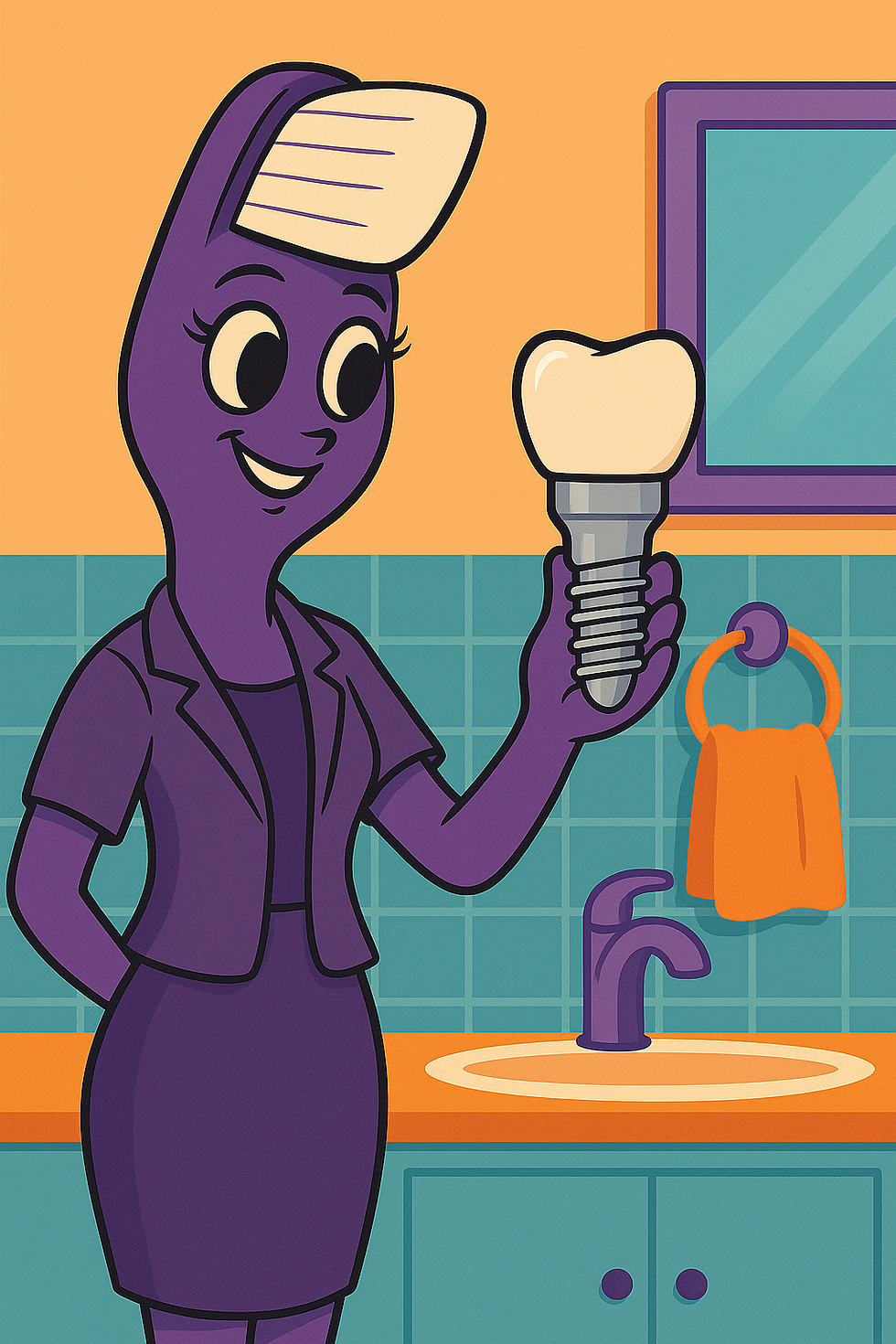Dental Trends: Too Good To Be True?
- Apr 18, 2025
- 3 min read
Updated: Apr 23, 2025

Scroll through social media or wander down the health aisle, and you're bound to see them: promises of dazzling white smiles and super healthy gums using "natural" methods like oil pulling or charcoal toothpaste. They sound intriguing, often ancient or cutting-edge, and hey, who doesn't want a healthier, brighter smile using simple ingredients?
But before you swap your trusty toothbrush for a jar of coconut oil or a tube of black paste, let's take a gentle, honest look beyond the hype. As your dental team, we love exploring ways to keep your mouth healthy, but we're also guided by science and what safely works. So, let's break down a couple of the biggest trends.
Trend #1: Oil Pulling - The Ancient Swish
What is it? An ancient Ayurvedic practice involving swishing a tablespoon of edible oil (like coconut, sesame, or sunflower) in your mouth for 10-20 minutes, then spitting it out.
The Claims: Proponents say it "pulls" toxins from the body, whitens teeth, kills harmful bacteria, reduces plaque, and improves gum health.
The Reality Check: Okay, swishing anything for that long might dislodge some food particles and temporarily reduce the amount of bacteria in your mouth – simply through mechanical action. Some very small studies suggest it might have a minor effect on plaque and gingivitis, similar to some antiseptic mouthwashes. However, there's no reliable scientific evidence to back up claims of whitening teeth or "pulling toxins" from your body (that's what your liver and kidneys do!).
Potential Downsides: It's time-consuming! Twenty minutes is a long time to swish. Some people experience jaw soreness. Accidentally inhaling the oil (lipid pneumonia) is a rare but serious risk. Most importantly, it absolutely does not replace brushing and flossing, which physically remove plaque and food debris in a way swishing alone can't.
Our Take: An interesting traditional practice, but think of it as maybe a supplement at best, not a replacement for the proven basics. The evidence just isn't strong enough to recommend it for significant dental benefits.
Trend #2: Charcoal Toothpaste - The Dark Path to Whiteness?
What is it? Toothpaste containing activated charcoal, a processed form of carbon known for its absorption properties.
The Claims: The main draw is teeth whitening, with the idea that the charcoal binds to and lifts surface stains. Some also claim it detoxifies the mouth.
The Reality Check: Activated charcoal is abrasive. This means it can scrub away some surface stains (like those from coffee or red wine), making teeth appear temporarily brighter. However, this comes at a cost. The abrasiveness can potentially wear down your precious enamel over time. Enamel doesn't grow back, and thinner enamel can lead to sensitivity and make teeth look more yellow as the underlying dentin shows through. There's no scientific evidence that charcoal provides any deeper whitening effect or offers any "detoxifying" benefit beyond what regular brushing does.
Potential Downsides: The biggest concern is abrasion and potential enamel damage. Many charcoal toothpastes also lack fluoride, the single most important ingredient for strengthening enamel and preventing cavities. Furthermore, charcoal particles can sometimes get lodged in fillings or gum pockets, causing irritation or dark lines.
Our Take: While it might lift some surface stains initially, the potential risks (enamel wear, lack of fluoride) often outweigh the unproven benefits. We generally advise against using abrasive substances on your teeth regularly.
Why Stick With the "Boring" Basics?
It might not sound as glamorous as ancient rituals or trendy black pastes, but the simple routine of:
Brushing twice daily (for two minutes!) with a soft-bristled brush and fluoride toothpaste.
Flossing once daily (or using another interdental cleaner).
...is still the undisputed, scientifically-backed champion for preventing cavities, gum disease, and keeping your smile healthy for the long haul. Fluoride actively strengthens enamel, and brushing/flossing physically remove the plaque biofilm that causes most dental problems.
Curious About a Trend? Ask Us!
We get it – the allure of a quick fix or a natural alternative is strong! But your smile is unique and precious. Before you jump on the latest dental trend you see online, please chat with us! We can discuss your specific goals (like whitening), examine your oral health, and recommend safe, effective options based on real evidence, not just buzz.
Our commitment is to provide gentle, honest, and comprehensive care – and that includes helping you navigate the confusing world of dental trends!
Dr. Noor N. AyToghlo



Comments